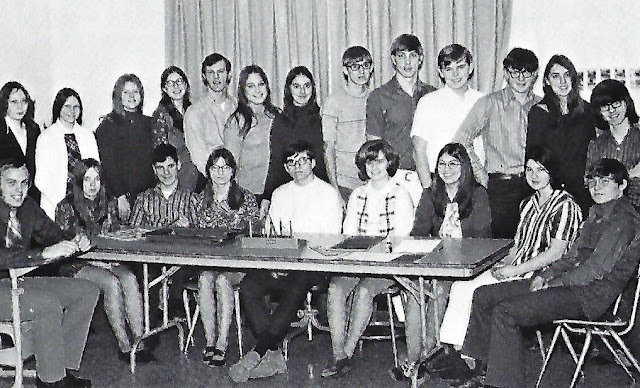“I remembered my songs in the night.” Psalm 77
We were standing in an old country church in South Dakota—stamped tin ceilings ancient oak pews. Once upon a time two wings had been added on either side for extra seating. The carpet was new, the paint fresh, but the place was old for white-settler South Dakota, 130 years. No matter how diligently the people kept it up, this house of worship showed its age.
My immigrant great-grandparents once walked, weekly, through the same front doors, then sat, five kids with them, beneath the same tin ceilings. I have a history in this old church—that’s what I was thinking. I may well have been the first great-grandchild ever to darken the front door, but some particle of me was once here some generations ago.
We’d just come from a long day along the Missouri River—some hiking, some sight-seeing on the valley’s big and gorgeous shoulders--before stopping at a woebegone country church in a town well down the road toward dying. It was early June, the sun radiant, the emerald land we’d been driving through quite empty of distraction and therefore, honestly, full of God.
An old psalm hymn bubbled up in my soul from somewhere in my childhood. I never considered it a favorite, hadn’t thought about it for years or sung it for decades. Long ago it was chased from the hymnal by more peppy stuff, but somehow it seemed apt for time and circumstance.
So I asked our guests whether they remembered “To the Hills I Lift My Eyes” from an old psalter. Average age got 50-cent coffee at McDonalds. They nodded politely, enough of an assent; besides I was not to be denied. I grabbed a pitch out of nowhere, and soon they were all with me because the first few lines hadn’t left anyone’s memory and the melody is simple. We pieced together the lyrics because some of us knew enough that all of us found a path through.
The bright sun outside created mid-summer heat and not a whisper of night, but I remembered Asaph’s voice in Psalm 77—“I remembered my songs in the night.” Even today, that line reminds me of that moment in that old church, and the blessedness of connecting with something greater than me or us or any of our individual stories, something ethereal that can only be carried in music. Beatitude in such unreasonable things is sometimes perfectly palpable.
One of the comforts of faith begins in our fulsome sense of our belonging—we are not alone because we know whose we are. “So, my brothers,” Paul says, heavy on the brothers, “you also died to the law through the body of Christ.” And why? “. . .so that you might belong to another, to him who was raised from the dead.” But there’s more: “. . .that we might bear fruit to God.”
Sometimes that fruit is emerges most fully in music, even in an old dying church in the middle of nowhere, a place set gloriously in God’s world, the God to whom we belong.
All that beauty reminded me as it does us, brothers and sisters, now through Lent, that once—and always--there was, and is, joy.





















